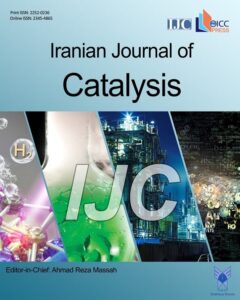Introducing Pt/ZnO as a new non carbon substrate electro catalyst for oxygen reduction reaction at low temperature acidic fuel cells
Authors
Abstract
Gas diffusion electrode was used for providing better conditions in fuel cell systems for oxygen reduction reaction (ORR). Because the slow kinetics of the oxygen reduction reaction at the proton exchange membrane fuel cell cathode restricts fuel cell efficiency. To this end, researchers have used platinum-coated carbon. In the present study, due to the reduction of carbon corrosion, Zinc oxide nanoparticles have been employed as a support material for platinum. The Pt/ZnO nanoparticles catalyst was made via a combined process of impregnation and seeding method. The microstructure of coating was characterized using scanning electron microscopy (SEM) which indicates that Pt nanoparticles are uniformly dispersed on the surface of ZnO. In order to investigate the chemical composition and crystalline phases of coating, X-ray analysis was carried out. Electrochemical Impedance Spectroscopy (EIS) was carried out for comparing the charge transfer effect during the ORR. The catalytic performance of the electrodes for ORR is evaluated through linear sweep voltammetry measurement. The O2 reduction current for Pt/ZnO alone is expectedly low due to the low electronic conductivity in ZnO. However, adding single-wall carbon nanotube (SWCNT) to the reaction layer improves the electrode performance. The prepared Pt/ZnO/SWCNT 30 wt. % electrode shows high catalytic activity for the ORR, which is probably attributed to conductivity changes caused by the addition of SWCNT. The electrochemical active surface area (ECSA) and durability investigation was studied by cyclic voltammetry in nitrogen saturated 0.5 M H2SO4. The results calculated from ECSA measurements were indicated that the degradation rate of optimized electrode is smaller than Pt/C electrode.



